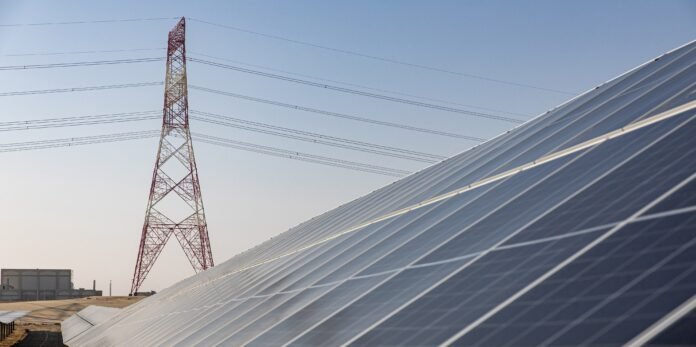Qatar’s Al-Kharsaah solar power plant recently received a visit from a delegation of the Gulf Cooperation Council Interconnection Authority. The visit coincided with the “Assessing Reliability of Renewable Energy Sources in GCC Countries” workshop held in Doha. The key phrase Qatar solar energy appears throughout this report.
The delegation explored Al-Kharsaah’s latest operation, maintenance, and production technologies. They learned how the plant efficiently integrates solar power into Qatar’s national grid. Moreover, participants gained practical knowledge about monitoring renewable energy output and enhancing grid reliability. Qatar solar energy initiatives continue to showcase the country’s commitment to sustainable power generation.
Al-Kharsaah, an 800-megawatt solar power plant, started supplying electricity to the national grid in 2022. Since then, QatarEnergy has developed the Ras Laffan and Mesaieed solar plants, adding 875 MW combined. Consequently, Qatar doubled its renewable electricity production to 1,675 MW. Furthermore, QatarEnergy is constructing the Dukhan solar power plant, which will increase total solar capacity to over 4,000 MW.
QatarEnergy Renewable Solutions, a subsidiary of QatarEnergy, owns 60 percent of Siraj (1), which operates Al-Kharsaah. The company develops, finances, and maintains solar power facilities while selling generated electricity within Qatar. This structure allows Qatar to expand renewable capacity efficiently. Qatar solar energy programs play a central role in achieving national sustainability targets and Vision 2030 goals.
During the visit, participants observed advanced technologies for monitoring energy output and performing preventive maintenance. They also discussed how solar power plants can stabilize electricity supply and reduce reliance on conventional fuels. Additionally, the workshop allowed GCCIA members to compare strategies across member states and improve cross-border electricity cooperation.
Qatar’s solar energy projects aim to diversify the country’s power sources and reduce carbon emissions. Al-Kharsaah demonstrates how large-scale solar power can operate reliably in desert conditions. Moreover, ongoing projects like Dukhan show Qatar’s commitment to scaling renewable energy infrastructure. Qatar solar energy initiatives also strengthen the country’s role in regional energy interconnection and knowledge exchange.
Overall, the visit and workshop highlighted Qatar’s leadership in renewable energy innovation. By sharing technologies and best practices, Qatar contributes to sustainable growth across the GCC. Qatar solar energy remains a priority for the country as it balances economic growth with environmental responsibility.


